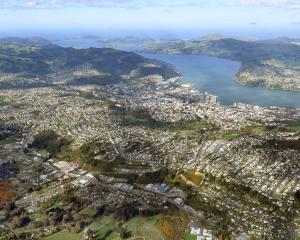The Dunedin City Council hearings committee has backed the reinstatement of Easter Sunday trading restrictions for retailers, after unions claimed workers were being pressured to work by ''big box retailers''.
A council hearings committee yesterday heard from submitters before voting 3-1 to reinstate the old rules, which restricted the types of retailers able to trade in the city on Easter Sunday.
The committee chairman, Cr Andrew Whiley, was the only councillor to vote against the move, while Crs Kate Wilson, Marie Laufiso and Damian Newell backed the reinstatement of restrictions.
The council had voted last year to ease Easter Sunday rules for retailers as a one-off, to cater for fans in town for the city's three Ed Sheeran concerts.
A plan to review the policy was included, and Mayor Dave Cull had warned at the time the changes would be reversed if the council got ''a whiff'' of poor treatment of employees.
The review attracted 111 submissions, 63% of which wanted a return to a more restricted approach.
A council review had found indications workers were being pressured to work on Easter Sunday, and yesterday Angus Wilson, a recruiter for First Union, which represents retail workers, told the hearing he knew two employees who faced that.
There was anecdotal evidence several others had been as well, and all were told by their employers they would be ''letting the side down'' if they did not work, he said.
He did not name the retailers, but business owners addressing the hearing yesterday painted a different picture, saying their workers had been free to say no, without repercussions, if they did not want to work.
Mitre 10 Mega group chief executive Neil Finn-House urged the hearing to stick with the ''permissive'' new policy, saying it worked well by clearly establishing rules for businesses and employees.
His company consulted staff before deciding to open its South Dunedin store, but not its Mosgiel one, and staff who did not want to work did not have to.
''It's sensible, it's fair, it supports our right to trade, it supports our workers' right to work, and it supports our customers' right to shop.
''I just don't see any down side to it,'' he said.
His views were backed by Greg Harford, of Retail NZ, and Russell Fowler, of Stirling Sports in Dunedin, who said sales at his store were 100% above normal on Easter Sunday.
Dunedin retailers needed to ''leverage everything we can'' to stave off competition from a growing retail sector in Queenstown and the prospect of a new stadium in Christchurch, he said.
Otago Chamber of Commerce chief executive Dougal McGowan said surveys of Dunedin retailers, before and after Easter, showed growing support for the relaxed approach.
That was despite just eight of 20 retailers who responded to the survey saying they intended to open again next time.
Mr McGowan said the relaxed policy gave workers a chance to earn money, and drew people to Dunedin, sending a signal the city was ''open for business''.
Peter Matheson, a cultural historian and Presbyterian minister, said the city was ''buzzing'', but there was more to life than just making money.
''You also need a break from the commercial aspect of life.
''We live in this incredibly wonderful country and we should be thinking in broader terms.''
The hearings committee's recommendation would be considered at next month's full council meeting.











